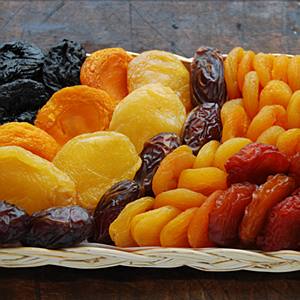Honey

DRIED FRUIT, e.g. APRICOTS, CURRANTS, DATES, FIGS, PRUNES, RAISINS, SULTANAS
Should you wish to reduce your "sugar" intake try to substitute some ot high sugar foods with unsweetened, "no added sugar" or reduced sugar items, some of which are often labelled as low Calorie and avoid adding sugar to drinks or food at tne table, e.g. cups of tea and coffee, breakfast cereals and milk puddings.
This will be a gradual process for many individuals who are accustomed to sweet foods and hence it is a good idea to reduce sugar levels slowly.
Initially you could perhaps use three-quarters of the sugar you would normally add to drinks or recipes , e.g. certain cakes, biscuits, puddings and reduce further when this established new level has become accepted as normal and enjoyable. To overcome the lack of sweetness it may be found beneficial to add extra flavour in the form of essences, lemon juice, peel, coconut, nuts or cocoa.
Moderation is a word we frequently hear in relation to our diet. This also applies to sugars. A little generally does no long term harm and cuttings back on sugars and fat too much may mean that insufficient kilocalories will be available from the diet.This is especially important for active children because lack of kilocalories from any source will restrict growth and normal development and although energy (kilocalories) expenditure may be large, appetites may not adequate to cope with this.
